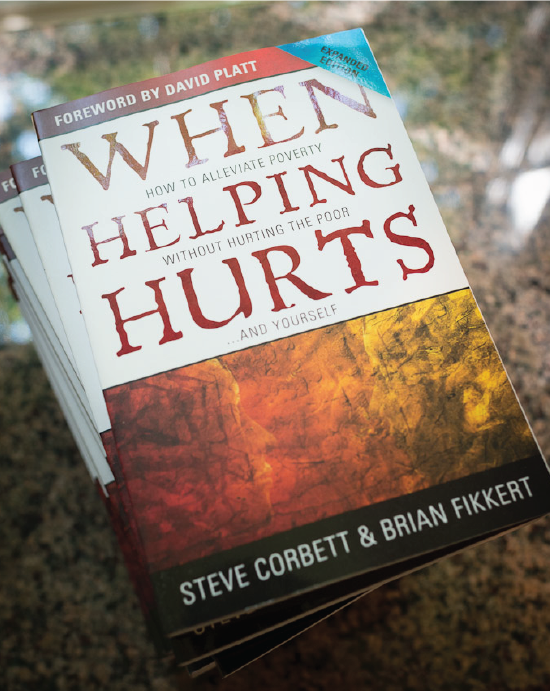Welcome to the launch of the Blood:Water Book Club! Joey Maloney is leading our first discussion on “When Helping Hurts.” Please enjoy the discussion below and feel free to answer the questions in the comment box below.
Poverty is a tricky subject, and for it to be combatted, it must first be defined because after all, you can’t win a battle until you know who it is you’re fighting against. “When Helping Hurts” does a good job of forcing the reader to redefine what “poverty” means and view it more holistically. Poverty is more difficult than we had thought; it requires more time, more concern, more listening before we speak, and this inconveniences us and our “quick-fix” culture. It requires admitting that we are all broken people and we cannot try to “fix” someone else’s problem until we are on the same level as that person, are willing to admit that we too have some degree of poverty in our lives, and are prepared to go through the process with that individual. The book craftily reveals that poverty is heavier than a handout and requires relationship for any sustainable change to occur.
Themes:
What is poverty? What should poverty alleviation look like? And what should our role and the church’s role be in the equation?
Powerful Lines:
- Poverty is the result of relationships that do not work, that are not just, that are not for life, that are not harmonious or enjoyable. Poverty is the absence of shalom in all its meanings –Bryant Myers, a leading Christian development thinker (pg. 59)
- The problem goes beyond the material dimension, so the solution must go beyond the material dimension as well (pg. 52).
- A significant part of working in poor communities involves discovering and appreciating what God has been doing there for a long time! This should give us a sense of humility and awe as we enter poor communities, for part of what we see there reflects the very hand of God (pg. 57).
Questions to Ponder:
- What words would you use to describe poverty before and after reading the first few chapters?
- In the four foundational relationships introduced by Myers in Chapter 2, which area do you experience the most poverty (with God, with Self, with Others, or with the Rest of Creation)? How could you improve this?
- Can you think of a time that you had good intentions in helping someone in need but you subconsciously had the god-complex and made them feel inferior?
Challenge:
Look for God’s beauty in places you would least expect to find it; in the poor, in the lowly, in the despised.

